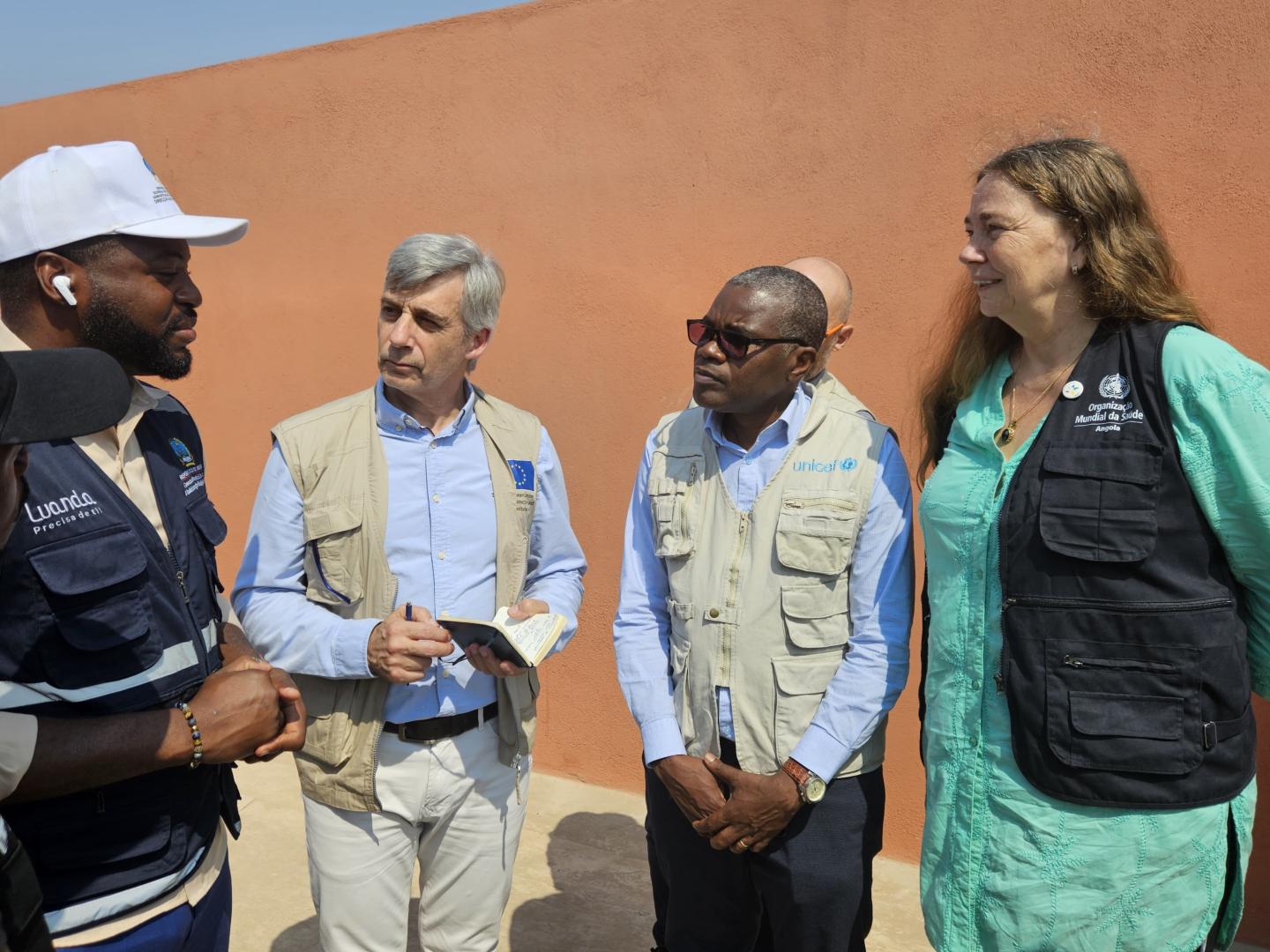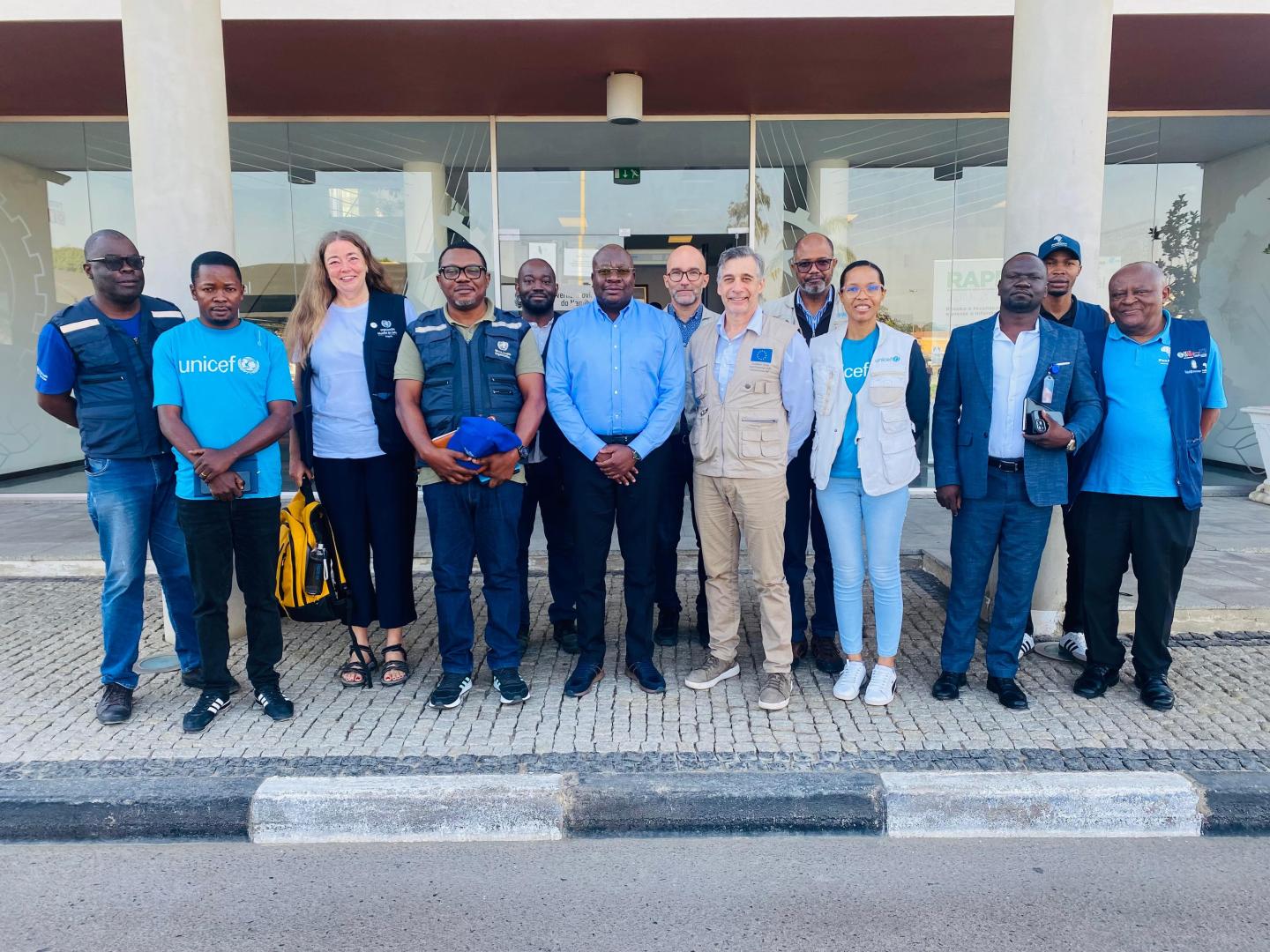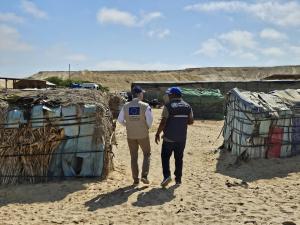ECHO, WHO, and UNICEF Conclude Successful Mission to Angola on Cholera and Nutrition Response
A high-level mission led by Pablo Torrealba, Head of the ECHO Regional Office for Southern Africa and the Indian Ocean, was successfully concluded in Angola following field visits and strategic meetings in Luanda, Namibe, and Huíla provinces. The mission, supported by the World Health Organization (WHO) and UNICEF, focused on evaluating progress in the cholera emergency response and nutrition interventions supported by the European Union.
The mission began in Luanda, where the delegation visited Samba municipality to observe key activities underway to contain the cholera outbreak. The team visited Cholera Treatment Centres (CTCs), Oral Rehydration Points (ORPs), and the Mabunda fish market, a key location for community engagement and public health messaging. The visit also highlighted the role of civil society organizations, such as JUCARRENTE, in mobilizing communities and raising awareness about cholera prevention. The collaborative response in Luanda shows a broader effort to improve basic sanitation and access to health services in densely populated areas.

From Luanda, the delegation travelled to Namibe Province, where they were received by the Provincial Director of Health, Dr. Coríntios Miguel. He shared the province’s experience in controlling the outbreak through strong coordination with health partners and government leadership. The delegation visited Tombwa municipality, once the epicentre of the outbreak. Many of the previously overwhelmed treatment centers are now empty, showing a significant reduction in case numbers and a successful containment effort. The mission also observed wider public health efforts to improve sanitation infrastructure as part of a long-term approach to prevent future outbreaks.
The final leg of the mission took place in Huíla Province. Upon arrival, the delegation met with the Provincial Director of Health, Dr. Paulo Luvangamo, who provided an update on both the cholera and nutrition situations in the province. The meeting underscored the continued need for partner coordination and sustained investment in health services.

Throughout the mission, the team reviewed progress under the EU-funded project implemented by WHO and UNICEF to support the Government of Angola’s emergency cholera response. The project focuses on high-risk provinces and aims to reduce mortality through a package of life-saving interventions. These include support to CTCs and ORPs, health worker training, improved water quality and sanitation measures, expanded surveillance, and the deployment of cholera vaccines. Community engagement remains at the heart of the response, with local volunteers facilitating health education and distributing prevention kits.
The mission included productive and open exchanges with national, provincial, and municipal authorities. It provided a valuable opportunity to assess the impact of collective action and reaffirm the importance of strong coordination between donors, UN agencies, and the Government of Angola in protecting lives and strengthening public health systems.
